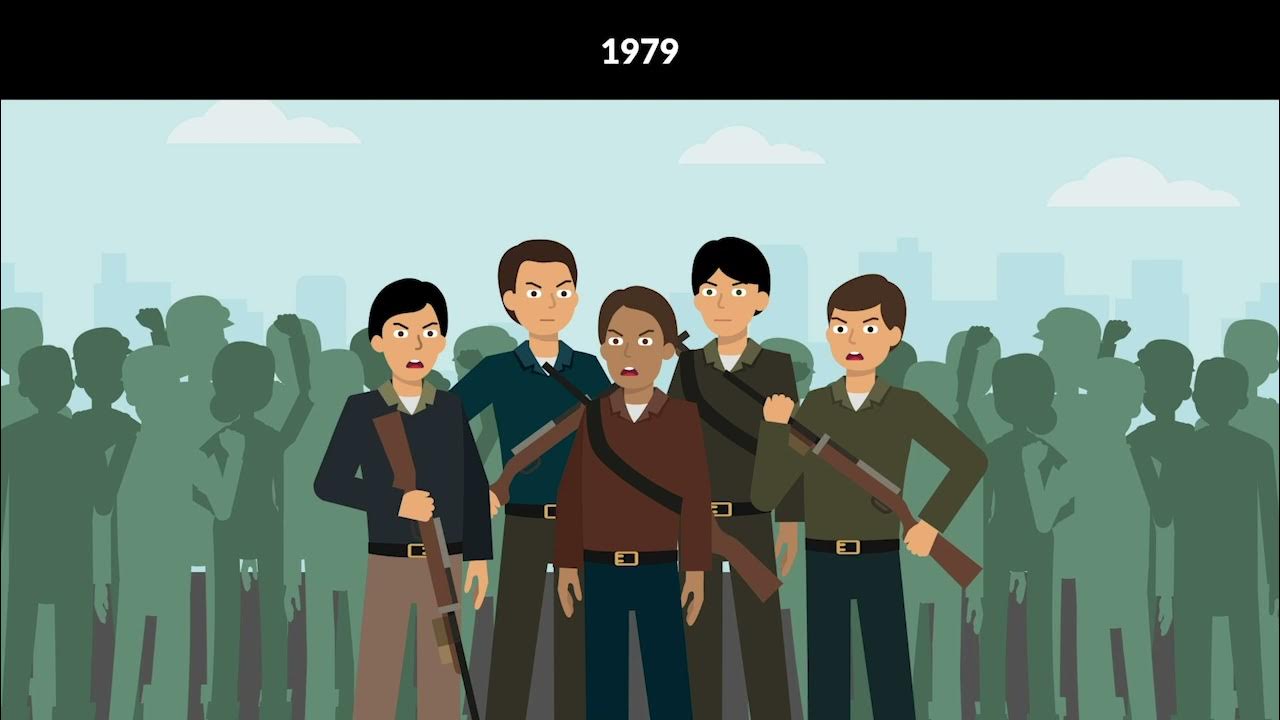What is the International Court of Justice? The Role and Activities of the ICJ
Summary
TLDRThe International Court of Justice (ICJ), based in The Hague, is the UN's principal judicial body, responsible for resolving disputes between states and providing advisory opinions. It handles a wide range of issues, from border and maritime disputes to humanitarian law and the use of force. Comprising 15 independent judges, the ICJ promotes international peace and legal development. While its rulings are binding, it does not prosecute individuals. The court’s judgments carry significant weight, often defusing global tensions and facilitating diplomacy, making it an invaluable instrument for peace and international cooperation.
Takeaways
- 😀 The International Court of Justice (ICJ) is the principal judicial organ of the United Nations and the world's highest international court, established in 1946.
- 😀 The ICJ is located at the Peace Palace in The Hague, Netherlands, and is the only principal UN organ not based in New York.
- 😀 The ICJ handles two types of cases: contentious cases (disputes between states) and advisory proceedings (legal questions posed by UN organs or agencies).
- 😀 The ICJ is not a criminal court; it only hears disputes between states, not individuals.
- 😀 The court has 15 judges from different countries, and its composition ensures a geographical balance. Judges serve for nine-year terms and are independent.
- 😀 Judges are elected by the UN General Assembly and Security Council, and the court elects its president and vice president every three years.
- 😀 The court's jurisdiction is general, meaning it can consider any issue of international law, and states can bring cases based on mutual consent.
- 😀 ICJ judgments are final and binding, and states are obligated to comply. If a state refuses to comply, the opposing state may seek action from the UN Security Council.
- 😀 Advisory opinions issued by the ICJ, though non-binding, carry significant weight in shaping international law and influencing UN actions.
- 😀 The ICJ plays a vital role in promoting peace by resolving international disputes, helping to normalize relations between states, and contributing to conflict resolution.
- 😀 Despite being a small part of the UN budget, the ICJ efficiently handles complex legal cases, with many contentious cases settled in under five years.
Q & A
What is the main function of the International Court of Justice (ICJ)?
-The ICJ is the principal judicial organ of the United Nations, responsible for settling disputes between states and providing advisory opinions on legal questions raised by UN organs or specialized agencies.
Where is the seat of the International Court of Justice located?
-The seat of the ICJ is located in The Hague, Netherlands, at the Peace Palace.
What are the two main types of cases the ICJ handles?
-The ICJ handles contentious cases (disputes between states) and advisory proceedings (legal questions submitted by UN organs or agencies).
Can the International Court of Justice handle criminal cases?
-No, the ICJ does not handle criminal cases. It only deals with disputes between states and provides advisory opinions.
How are judges selected for the International Court of Justice?
-The ICJ consists of 15 judges elected for nine-year terms by the UN General Assembly and Security Council. The court ensures a geographical balance by having judges from different regions of the world.
What is the process for states to bring a case before the ICJ?
-States must consent to having a case referred to the ICJ, typically through an international treaty or by mutual agreement. The court can only hear cases if both states involved agree.
What happens during the ICJ’s deliberation process?
-After states submit their written and oral arguments, the judges deliberate in private. Their decisions are made by a majority vote and are delivered in the court's two official languages.
What is the significance of the ICJ's advisory opinions?
-Advisory opinions issued by the ICJ carry great legal and moral weight, though they are not binding. These opinions help clarify international law and guide UN agencies and states in their legal practices.
What happens if a state refuses to comply with the ICJ’s ruling?
-If a state refuses to comply with the ICJ’s judgment, the opposing state can bring the matter to the UN Security Council, which may recommend measures to enforce the decision. However, non-compliance is rare.
How does the ICJ contribute to international peace and security?
-The ICJ helps defuse crises, normalize relations between states, and settle disputes peacefully, thereby contributing to the maintenance of international peace and security, a core goal of the United Nations.
How is the International Court of Justice administratively structured?
-The ICJ is administratively independent from the UN Secretariat and is supported by a registrar, who heads the court's registry and assists with judicial, diplomatic, and administrative tasks.
What is the ICJ’s budget relative to the United Nations' budget?
-The ICJ’s budget accounts for less than 1% of the regular budget of the United Nations, yet it manages to resolve the majority of complex cases efficiently, often in under five years.
Outlines

Этот раздел доступен только подписчикам платных тарифов. Пожалуйста, перейдите на платный тариф для доступа.
Перейти на платный тарифMindmap

Этот раздел доступен только подписчикам платных тарифов. Пожалуйста, перейдите на платный тариф для доступа.
Перейти на платный тарифKeywords

Этот раздел доступен только подписчикам платных тарифов. Пожалуйста, перейдите на платный тариф для доступа.
Перейти на платный тарифHighlights

Этот раздел доступен только подписчикам платных тарифов. Пожалуйста, перейдите на платный тариф для доступа.
Перейти на платный тарифTranscripts

Этот раздел доступен только подписчикам платных тарифов. Пожалуйста, перейдите на платный тариф для доступа.
Перейти на платный тарифПосмотреть больше похожих видео

2.1 An Introduction to the International Court of Justice

EXPLAINER VIDEO | Difference between the ICJ and the ICC

Penyelesaian Sengketa Internasional

Nicaragua v. United States Case Brief Summary | Law Case Explained

Aula 28 - Solução Pacífica de Conflitos

Island Dispute Unveiled: Who Owns Ligitan and Sipadan?
5.0 / 5 (0 votes)
